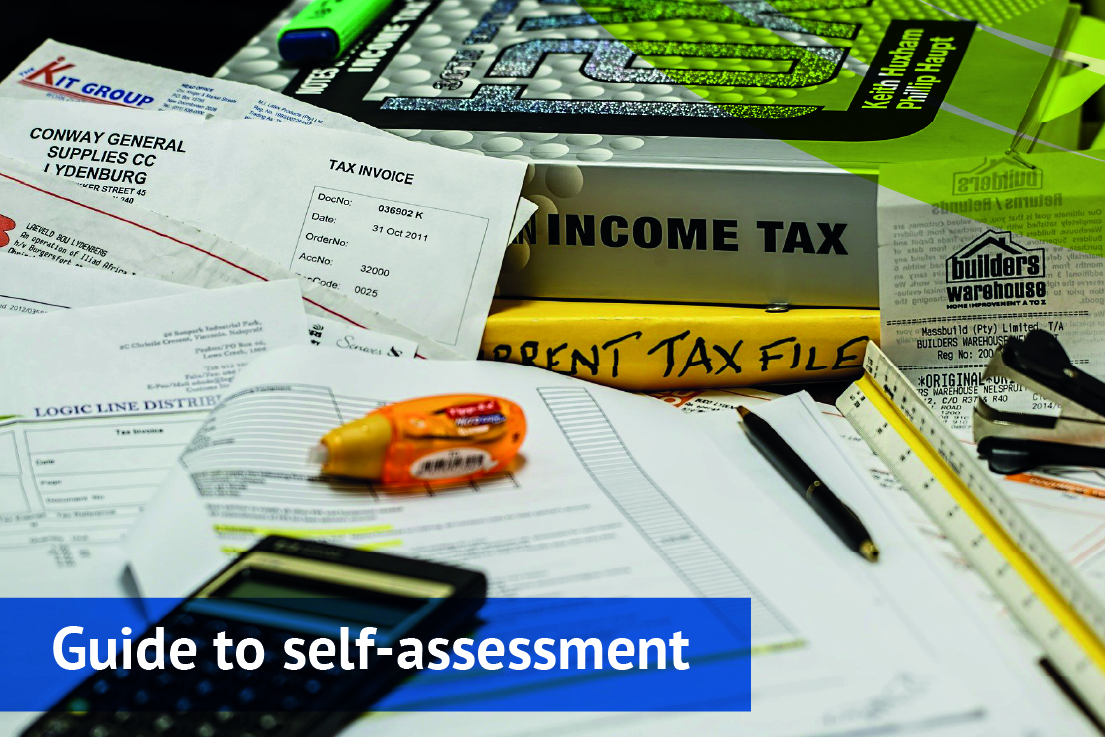Guide to HMRC Self Assessment
22nd December 2020
The January deadline for filing your HMRC Self Assessment is fast approaching. In this guide we explain everything you need to know about completing your tax return.
What is HMRC Self Assessment?
The Self Assessment tax return is a form many business owners are required to submit to HMRC every year to declare their income and where it has come from. It also includes information about any tax relief you may be eligible for, such as charitable deductions and business purchases. HMRC will then use this information to calculate how much tax is owed.
Who has to submit an HMRC Self Assessment tax return?
You must submit your Self Assessment if you have been a self-employed sole trader earning more than £1,000 or a partner in a business partnership during the last tax year (6 April – 5 April).
You may also need to submit one if you have received any additional untaxed income from other sources, for example rent, tips or investments.
The easiest way to check if you need to send a Self Assessment is using HMRC’s checker tool.
Deadlines and late filing penalties
The deadline to submit your Self Assessment and pay the tax you owe for online tax returns is 31 January 2021.
Remember, late filing will result in penalties, unless you can prove you have a good reason. Tax returns up to three months’ late are subject to a penalty of £100 if your tax return is up to three months late. You’ll have to pay more if it’s later or if you pay your tax bill late. You’ll also be charged interest on late payments.
You can appeal this decision and there are a number of “reasonable excuses” HMRC will accept, including:
- your partner or another close relative died shortly before the tax return or payment deadline
- you had an unexpected stay in hospital that prevented you from dealing with your tax affairs
- you had a serious or life-threatening illness
- your computer or software failed just before or while you were preparing your online return
- service issues with HM Revenue and Customs (HMRC) online services
- a fire, flood or theft prevented you from completing your tax return
- postal delays that you could not have predicted
- delays related to a disability you have
HMRC has also said it will consider coronavirus as a reasonable excuse for missing some tax obligations (such as payments or filing dates).
How to submit your HMRC Self Assessment tax return
The easiest way to file is online. It’s a good idea to have all the documentation you need to hand – remember you will need the following information:
- Your 10-digit UTR
- National Insurance number
- Details of any untaxed income from the last tax year
- Any tax reliefs you may be eligible for, including pensions, charitable donations and business purchases
- P60
You will be required to complete two sections – the main form (SA100) and any relevant supplementary pages (SA103, SA105 and SA108). The SA100 includes the following:
- Income: this is where you would declare any tax and untaxed income from interest – this includes bank or building society accounts and dividends
- Pensions, annuities and state benefits: if you are in receipt of a pension (including a state pension), you will need to declare it here. This section is also where you would enter details of any taxable benefits you claimed during the tax year
- Other UK income: this is where you would declare any other taxable income not included in the supplementary pages or interest/dividends section
- Pension contributions: any payments made into a pension scheme
- Charitable donations: any Gift Aid donations you have made to charities
- Blind Person’s Allowance: confirm whether you are in receipt of Blind Person’s Allowance
- Student loan repayments: confirm whether or not you are repaying your student loan along with any deductions made by your employer
- High income Child Benefit charge: you will need to complete this section if you are in receipt of Child Benefit and your income is over £50,000
- Marriage Allowance: you can complete this section if you wish you transfer some of your Personal Allowance to your spouse (you may only do this if your income was less than the Personal Allowance)
Depending on your circumstances, you may be required to fill out a supplementary form:
- SA013 – you will need to complete this if you are self-employed. You will need to declare your total income and any business expenses. Please note, if your annual turnover is below £85,000 you do not need to itemise these expenses, however for self-employed people turning over more than this you will be required to submit an individual amount for each type of expenses
- SA015 – this is the form you will need to complete if you receive income from property (i.e. you are a landlord). You’ll need to declare any income from long and short term rentals, including holiday lets. You can also claim for expenses for things like ground rent, maintenance and professional fees
- SA018 – this is where you need to declare any income you receive from Capital Gains
Leave it to the experts
The easiest way to complete your HMRC Self Assessment is to leave it to the experts. Our team of North East tax specialists have the specialist knowledge and experience required to ensure your Self Assessment is completed correctly and on time. Get in touch to find out how we can help you.





